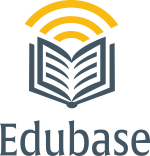A MODEL OF THE E LEARNER’S SELF-MANAGEMENT PROCESSES
DOI:
https://doi.org/10.7213/rde.v4i13.7034Resumo
Web-based Learning Environments (WBLE) carry conditions that affect the learning process. Network collaboration among peers, multimedia information processing and distance are some of the eLearning features that create flexible environments, which in turn demand the eLearner to take control over the learning process. Since 1995 we have conducted a longitudinal research aimed at identifying the eLearner’s needs for support. The study has led to the operationalization of a set of self-management processes necessary to a WBLE. The framework guiding the research borrows from theory and practice of adult and distance learning as well as findings from metacognitive studies. This paper presents the conceptual model of tasks, objects and resources resulting from this research. The usefulness of such a model is exemplified by interactive tools designed to support time management.Downloads
Referências
BAYNTON, M. Dimensions of control in distance Education: a factor analysis. American Journal of Distance Education, v.6, n. 2, p.17-31, 1992.
BELISLE, C.; LINARD, M. Quelles nouvelles competences des acteurs de la formation dans le contexte des TIC?. Éducation permanente, v.127, n. 2, p.1947, 1996
BROWN, A. Metacognition, executive control,self-regulation and more mysterious mechanisms. In: WEINERT, F.E.; KLUWE, R.H.
(Eds). Metacognition, motivation and understanding. Hillsdale: Lawrence Erlbaum, 1987. p.65-116.
BROWN, J.S., COLLINS, A.; DUGUID, P. Situated Cognition and the Culture of Learning. Educational Researcher, p. 32-42, jan./fev.1989.
BURGE, E.J. Learning in computer conference contexts: the learners’ perspective. Journal of Distance Education, v. 9, n.1, p.19-43, 1994.
CARON, M. La gestion du temps en apprentissage a distance. Mémoire de maîtrise, faculté des études supérieures, Université Laval, 1994.
DESCHENES, A.J. Autonomie et enseignement a distance. La Revue canadienne pour l’étude de l’éducation des adultes, v.1, p.32-54, 1991.
FLAVELL, J.H. Metacognition and Cognitive Monitoring, A new Area of Cognitive-Developmental Inquiry. American Psychologist, v. 34, n.10, p. 906-911, 1979.
GARLAND, M. Ethnography Penetrates the «I didn’t Have Time» Rationale to Elucidate Higher Order Reasons for Distance Education Withdrawal. Research in Distance Education, v.5, n.1-2, p. 6-10, 1993.
HARASIM, L. M. TeleLearning Network Centers of Excellence, Building a Knowledge Society. Strategic Plan, C1-C22, 1995.
HENRI, F.; LUNDGREN-CAYROL, K. Les environnements de collaboration a distance. Québec: Presses de l’université du Québec, 2001.
JONES, M.G., FARQUHAR, J.D.; SURRY, D.W. Using metacognitive theories to design user interfaces for computer-based learning. Educational Technology, p.12-22, july./aug. 1995.
KINTSCH, E. Principles of Instruction from Research on Human Cognition. In: SPECTOR, M.; POLSON, M.; MURIADA, D. J. (Eds). Automating Instructional Design, Concepts and Issues.
Englewood Cliffs: Educational Technology Publications, 1993. p.23-43.
MARCHAND, L. L’apprentissage a vie: la pratique de l’education des adultes et de l’andragogie. Montréal: Les éditions de la Chenelière, 1997
.
MARCHIONINI, G. Information-Seeking Strategies of Novices Using a Full-Text Electronic Encyclopedias. Journal of the American Society for Information Science, v.40, n.1, p.54-66, 1989
MAYES, T. Distance learning and the new technology: a learner-centered view. Institute for Computer-Based Learning. Edinburg: Heriot-Watt University, 1996. Available in: http://www.icbl.hw.ac.uk/ctl/mayes/paper10.html.
NOEL, B. La metacognition. Bruxelles: De Boeck-Wesmael, 1990.
PAQUETTE, G. La modelisation par objets types, une methode de representation pour les systemes d’apprentissage et d’aide a la tache. Sciences et techniques educatives, v.3, n.1, 1996.
RUELLAND, D. Self-Directed Learning , a model of supports for the workplace. In: Symposium on Self-Directed Learning, 16e. Annals… Motorola University, Feb. 5-9, Boynton Beach, Fl, 2002.
Downloads
Publicado
Como Citar
Edição
Seção
Licença
O(s) autor(es) transfere(m), por meio de cessão, à EDITORA UNIVERSITÁRIA CHAMPAGNAT, pessoa jurídica de direito privado, inscrita no CNPJ/MF sob o n.º 76.659.820/0009-09, estabelecida na Rua Imaculada Conceição, n.º 1155, Prado Velho, CEP 80.215-901, na cidade de Curitiba/PR, os direitos abaixo especificados e se compromete a cumprir o que segue:
- Os autores afirmam que a obra/material é de sua autoria e assumem integral responsabilidade diante de terceiros, quer de natureza moral ou patrimonial, em razão de seu conteúdo, declarando, desde já, que a obra/material a ser entregue é original e não infringe quaisquer direitos de propriedade intelectual de terceiros.
- Os autores concordam em ceder de forma plena, total e definitiva os direitos patrimoniais da obra/material à EDITORA UNIVERSITÁRIA CHAMPAGNAT, a título gratuito e em caráter de exclusividade.
- A CESSIONÁRIA empregará a obra/material da forma como melhor lhe convier, de forma impressa e/ou on line, inclusive no site do periódico da EDITORA UNIVERSITÁRIA CHAMPAGNAT, podendo utilizar, fruir e dispor do mesmo, no todo ou em parte, para:
- Autorizar sua utilização por terceiros, como parte integrante de outras obras.
- Editar, gravar e imprimir, quantas vezes forem necessárias.
- Reproduzir em quantidades que julgar necessária, de forma tangível e intangível.
- Adaptar, modificar, condensar, resumir, reduzir, compilar, ampliar, alterar, mixar com outros conteúdos, incluir imagens, gráficos, objetos digitais, infográficos e hyperlinks, ilustrar, diagramar, fracionar, atualizar e realizar quaisquer outras transformações, sendo necessária a participação ou autorização expressa dos autores.
- Traduzir para qualquer idioma.
- Incluir em fonograma ou produção audiovisual.
- Distribuir.
- Distribuir mediante cabo, fibra ótica, satélite, ondas ou qualquer outro sistema que permite ao usuário realizar a seleção da obra ou produção para recebê-la em tempo e lugar previamente determinados por quem formula a demanda e nos casos em que o acesso às obras ou produções se faça por qualquer sistema que importe em pagamento pelo usuário.
- Incluir e armazenar em banco de dados, físico, digital ou virtual, inclusive nuvem.
- Comunicar direta e/ou indiretamente ao público.
- Incluir em base de dados, arquivar em formato impresso, armazenar em computador, inclusive em sistema de nuvem, microfilmar e as demais formas de arquivamento do gênero;
- Comercializar, divulgar, veicular, publicar etc.
- Quaisquer outras modalidades de utilização existentes ou que venham a ser inventadas.
- Os autores concordam em conceder a cessão dos direitos da primeira publicação (ineditismo) à revista, licenciada sob a CREATIVE COMMONS ATTRIBUTION LICENSE, que permite o compartilhamento do trabalho com reconhecimento da autoria.
- Os autores autorizam a reprodução e a citação de seu trabalho em repositórios institucionais, página pessoal, trabalhos científicos, dentre outros, desde que a fonte seja citada.
- A presente cessão é válida para todo o território nacional e para o exterior.
- Este termo entra em vigor na data de sua assinatura e é firmado pelas partes em caráter irrevogável e irretratável, obrigando definitivamente as partes e seus sucessores a qualquer título.
- O não aceite do artigo, pela EDITORA UNIVERSITÁRIA CHAMPAGNAT, tornará automaticamente sem efeito a presente declaração.












